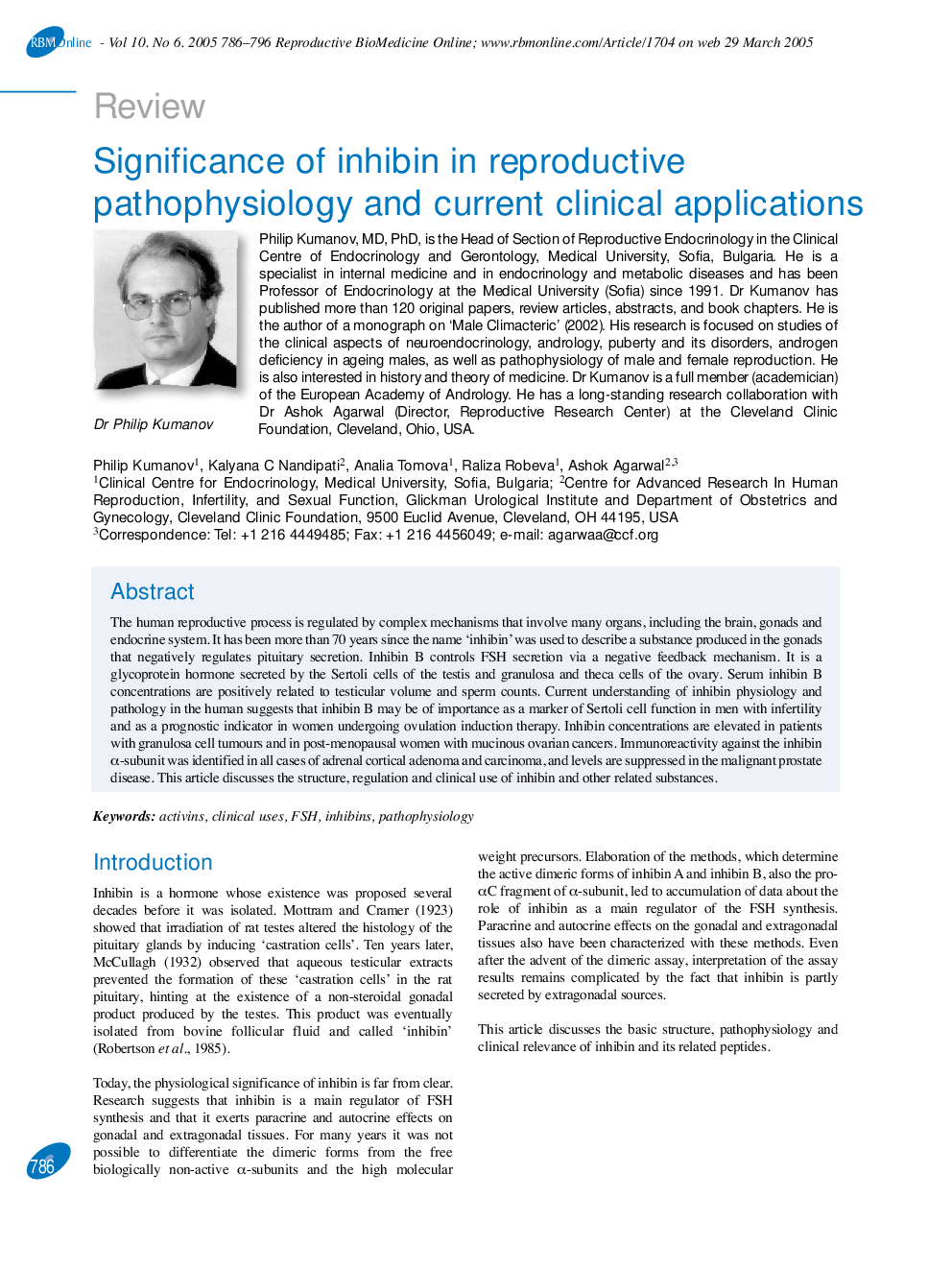| Article ID | Journal | Published Year | Pages | File Type |
|---|---|---|---|---|
| 9334859 | Reproductive BioMedicine Online | 2005 | 11 Pages |
Abstract
The human reproductive process is regulated by complex mechanisms that involve many organs, including the brain, gonads and endocrine system. It has been more than 70 years since the name 'inhibin' was used to describe a substance produced in the gonads that negatively regulates pituitary secretion. Inhibin B controls FSH secretion via a negative feedback mechanism. It is a glycoprotein hormone secreted by the Sertoli cells of the testis and granulosa and theca cells of the ovary. Serum inhibin B concentrations are positively related to testicular volume and sperm counts. Current understanding of inhibin physiology and pathology in the human suggests that inhibin B may be of importance as a marker of Sertoli cell function in men with infertility and as a prognostic indicator in women undergoing ovulation induction therapy. Inhibin concentrations are elevated in patients with granulosa cell tumours and in post-menopausal women with mucinous ovarian cancers. Immunoreactivity against the inhibin α-subunit was identified in all cases of adrenal cortical adenoma and carcinoma, and levels are suppressed in the malignant prostate disease. This article discusses the structure, regulation and clinical use of inhibin and other related substances.
Keywords
Related Topics
Health Sciences
Medicine and Dentistry
Obstetrics, Gynecology and Women's Health
Authors
Philip Kumanov, Kalyana C Nandipati, Analia Tomova, Raliza Robeva, Ashok Agarwal,
